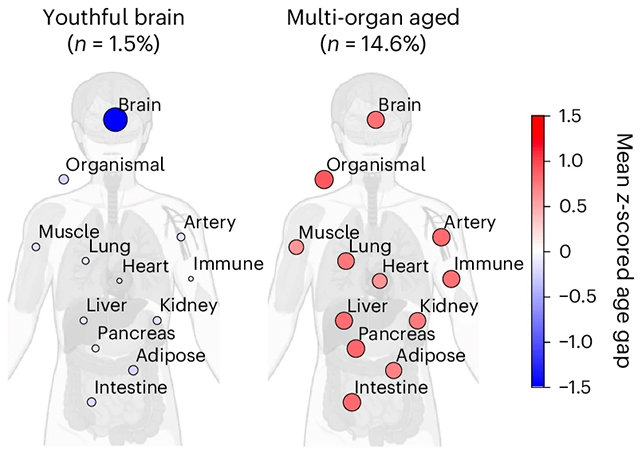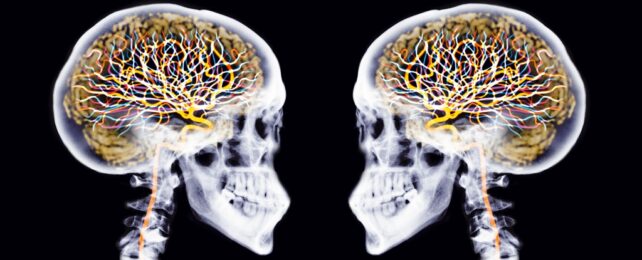We celebrate our birthdays on the same day each year, but the truth is that different parts of our bodies are aging at different speeds. New research suggests brain age could be a strong predictor for lifespan.
This comes from a team from Stanford University, who applied a blood analysis technique on records of 44,498 individuals in a UK health research database, aged between 40 and 70 years old. The analysis gave them an estimated biological age for 11 key organs in the body, including the brain.
These organ ages were then compared against the health records of the participants, for up to 17 years. Generally, the more 'aged' organs a participant had, the higher their risk of dying within the follow-up period.
Related: Humans Age Faster at 2 Specific Times in Their Life, Study Finds
If one organ had to be chosen as the best single representative, it would be the brain: the data showed that people with a younger brain age tended to have a longer lifespan.
"The brain is the gatekeeper of longevity," says neuroscientist Tony Wyss-Coray, from Stanford University.
"If you've got an old brain, you have an increased likelihood of mortality. If you've got a young brain, you're probably going to live longer."
The blood test used here works by measuring protein levels, and matching those proteins to the organs that produce them. Through some complex calculations, this indicates how well each organ is functioning – whether they're working more like a brand new, souped-up sports car, or a dilapidated old vehicle on the verge of collapse.

As you might expect, the older an organ was – essentially, the more wear and tear indicated by its proteins – the more likely the chances of disease in that organ. The greater the number of 'elderly' organs, the greater the likelihood of disease or an early death.
It was the brain stats that really stood out though. People with "extremely aged" brains (in the top 7 percent in terms of old age) were almost twice as likely to die over a 15-year period, compared to those whose biological brain ages were more in line with their chronological age.
Those with "extremely youthful" brains had a 40 percent lower risk of dying within the study period.
There were other interesting associations too: Alzheimer's disease was around 3.1 times more likely in extremely aged brains compared to normally aged brains. Extremely youthful brains, meanwhile, were 74 percent less likely to develop Alzheimer's than those closer to chronological age.
We know that a whole host of factors combine to increase or decrease our chances of dying or developing diseases, and previous studies have shown that poverty, obesity, and physical activity might all have an impact on brain aging.
And brain aging is just one variable linked to lifespan – everything from how carefully you cross the road to your eating habits adds up to determine how long you're going to live, so we can't say brain aging is the direct cause here. What's more, there's likely to be two-way feedback here, with disease also contributing to organ aging.
However, it's important to understand which variables can make the most difference, and to get as full a picture as possible of the contributors to disease and mortality, in order to maximize our chances of aging healthily.
"This approach could lead to human experiments testing new longevity interventions for their effects on the biological ages of individual organs in individual people," says Wyss-Coray.
"The cost will come down as we focus on fewer key organs, such as the brain, heart and immune system, to get more resolution and stronger links to specific diseases."
The research has been published in Nature Medicine.
